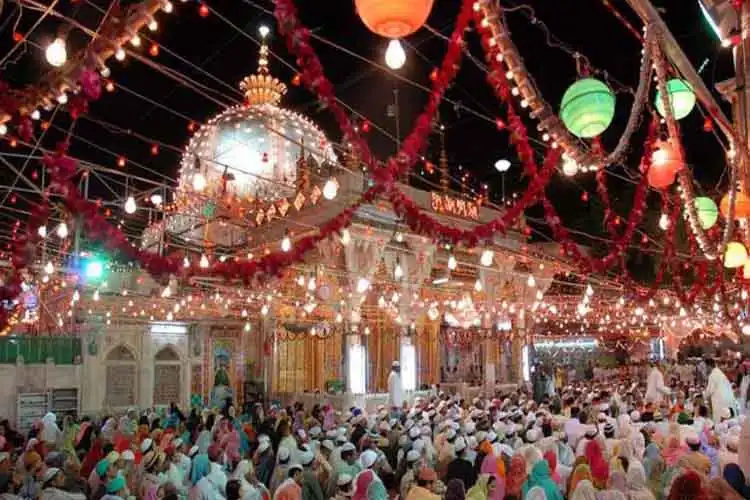
New Delhi
In the run-up to the 811th Urs of one of the most revered Sufi saints of the Indian sub-continent Khwaja Moinuddin Chishty, his followers have started marching from Delhi to his resting place in Ajmer at his dargah in Rajasthan.
On Monday, the ceremonial procession will pass through South Delhi areas. It began on Sunday from the Jama Masjid Chowk of Delhi. The devotees stayed at the dargah of another Sufi Saint Hazrat Nizamuddin Awaliya overnight and will start their onward journey to Ajmer on Monday.
The Urs is a commemoration of the passing away of the Saint who is revered by Hindus and Muslims alike. His followers and devotees also come from across the world especially, Pakistan and Bangladesh.
The procession will continue to pass through Delhi for three days and the Delhi police have issued an advisory for the public on the occasion.
The main celebrations to mark the 811th annual Urs of Moinuddin Chishti in Ajmer, Rajasthan will begin on January 18 with the hoisting of the flag at the highest entrance of the Dargah in Ajmer.
According to tradition, the Ghori family of Bhilwara, Rajasthan will perform the ceremony of offering the flag at the Urs. The festival will continue for six days.
The festival is tentatively scheduled on January 22. The uncertainty of the date is because of the mandatory sighting of the moon. The Dargah Committee is making vigorous preparations for the Urs.
Lakhs of people from all over the world are expected to participate in this six-day Urs. The rituals of Urs will continue for nine days traditionally. During this, the Jannati Darwaza, a highly spiritual space that is usually closed on other days, will be opened for the devotees.
Last year, PM Narendra Modi also sent a chadar. PM Modi had said in a tweet, "Gifted a chador, which will be offered at Ajmer Sharif Dargah on the Urs of Khwaja Moinuddin Chishti."
Both Hindu and Muslim communities offer chador at the shrine. People from all over the country reach there and ask for their blessings. From politicians to actors and people associated with every field pay their obeisance at the mausoleum of Khwaja Moinuddin Chisty.
Moinuddin Chishty also called Garib Nawaz, the protector of the poor, was born in Persia (today’s Iran-Iraq) and came to India in the early 13th century and promulgated the Chishtiya order of Sunni mysticism.
Mystics like Nizamuddin Auliya and Amir Khushroo also belonged to this order.
In his lifetime he acquired the reputation of being a charismatic and compassionate spiritual preacher and teacher while he settled down in Ajmer.
ALSO READ: Haryana Imams to get 14K-16K salary
According to John Esposito, an Italian-American academic, professor of Middle Eastern and religious studies, and scholar of Islamic studies, Moinuddin Chisty was the first major Islamic mystic to formally allow his followers to incorporate the "use of music" in their devotions, liturgies, and hymns to Allah.
